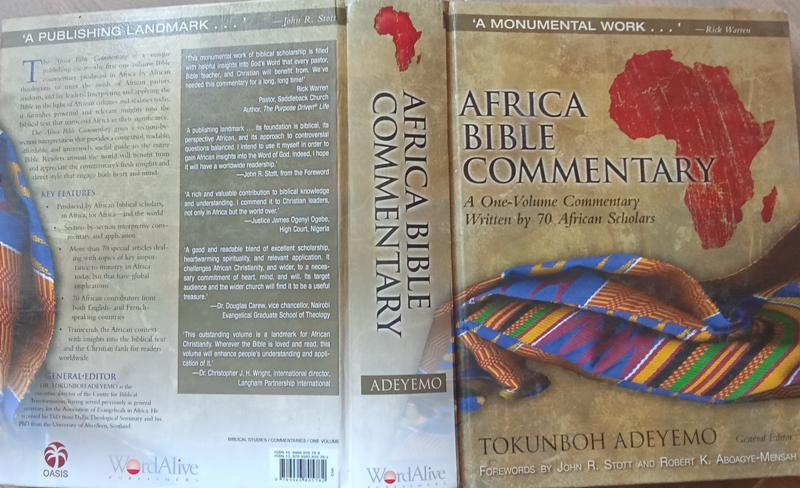ArtMatters.Info writer MWENDA wa MICHENI with additional reporting from OGOVA ONDEGO begs to differ with DINA LIGAGA’s assertion titled Kwani?2 Boosts Kenyan Literature that appears elsewhere in ArtMatters.Info.
 Having won the 2002 Caine Prize for African Writing, 52-page Discovering Home may provoke lots of interest from readers. The plot is simple, making the book an easy read with well-spaced lines and considerably well-sized fonts. However, the book fails to speak for itself despite mentions of issues like neocolonialism, the gap between the poor and the rich, the imprudent aping of Western mannerisms, tribalism and even alienation.
Having won the 2002 Caine Prize for African Writing, 52-page Discovering Home may provoke lots of interest from readers. The plot is simple, making the book an easy read with well-spaced lines and considerably well-sized fonts. However, the book fails to speak for itself despite mentions of issues like neocolonialism, the gap between the poor and the rich, the imprudent aping of Western mannerisms, tribalism and even alienation.
One sees in Binyavanga Wainaina, a writer who has a love for writing but lacking in authorial vision. As we learn from Allan Edgar Poe, the father of the short story, a good short story should address itself to one or two issues if it has to be done well. This is so because issues are not supposed to be merely mentioned but should also be confronted.
Young and up-and-coming writers have often complained against local publishers, accusing them of contributing to the much sung about lack of a reading culture in Kenya. Kwani? Trust has launched a magazine that it says it intends to make ” ‘this country ‘known around the continent as a country of creative people’ and bring back a reading culture by providing materials that interest them.
RELATED: If Writing Is A Game, Here Are The Rules By Which To Play It!
According to Kwani?, poor cover designs, poor designs and outdated writing styles are to blame for the poor reading culture. As for me, a trained literature teacher, I beg to differ. It is neither the publisher nor the illustrator who is to blame for the so-called poor reading culture but the government.
The Kenya African National Union government, having recognised the threat to itself by thriving literature, set out to curtail it. Literature was painted as a subject of rebels in the days of Ngugi wa Thiongo, Micere Mugo, and Maina wa Kinyatti at the University of Nairobi. The government had thus sowed the seed of poor reading culture.
Syllabi were made leaner to ensure that literature did not flourish. This was achieved by not availing materials that were to equip a literature scholar.
The launching of Kwani? journal during the National Book Week in 2003 came when local publishers were crying foul over poor sales of books in the local market. In what may be seen as a bold step, Kwani? Trust did a rare thing: went for a high quality book cover material and design. What Kwani? borrowed from locally produced books is the quality of the paper used in inside pages and the colour of the illustrations. With Kwani? accommodating short stories, poetry, cartoons, photographs, advertisements, letters and other features, it was difficult to classify it as creative or journalistic.
It cut across interests by including Weight of Whispers (Yvonne Adhiambo Owuor’s Caine Prize for African Writing 2003 winner), Odour of Fate by Muthoni Garland, poetry by Muthony (shouldn’t it be Muthoni?) wa Gatumu, an interview with Kalamashaka by Binyavanga Wainaina, a review of the arts by ArtMatters.Info, and a profile of the late South African Kwaito queen Brenda Fassie by Prof Njabulo Ndebele. Kwani? thus came out as an attempt, in a populist way, at creating a centre of attention, or what the publishers considered the contemporary trend in literature. Save for a few short stories and poems, one concluded that Kwani? belonged more to the journalistic than the literary world. It was also not difficult to see that the editors of the magazine, probably due to their background, gravitated towards the young urbanite class.
This was evident from the heavy use of the informal Sheng and street slang in some of the articles. On page 104 one reads: “Ngoja this baby with some serious bootie ingiad the pub and proceeded to sit on a bar stool right next to me (shit I almost whoooooped out loud). The jamaas in the pub were all shamelessly gawking. Baby had bootie and she knew it.”
Although creatively used, Sheng greatly holds back the grasp of those outside the groups that use these codes in their communication, limiting the reach of the publication in terms of audience and lifespan. Sheng, being a mixture of various vernaculars, Kiswahili and English, differs with region and speakers. As such, it is difficult to tell how it can survive in writing at this stage of growth.
RELATED: Here is How to Write on 1001 Subjects!
‘The Life and Times of Richard Onyango’ may have little literary value to offer but it keeps you flipping through its pages, enjoying not just the illustrations, but also the story as told from a first person narration in an informal language that appears not to adhere to any rules of grammar. For instance: ‘the only thing was to struggle me into the car’, ‘she started the ingine’, ‘all the buttons of the shirt were finished’, ‘Her dress was wet with sweat as if water has been poured on her’, ‘I tried to beg her eat with me’, ‘1 went to see her’, ‘She did not refuse or respond’, ‘me, I could wonder how’, “who can you fool if she wise and true”, “I si I’m junior?”, ‘Fazal was every happy.’
However, such oversights as enumerated here may make one to wonder whether Kwani? wants to go the way of Nigerian Amos Tutuola’s The Palmwine Drinkard.
Wa Gatumu, in her poem, Next Christmas, seems to satirise what many value at the expense of their own personal love. To her, life is not what the others are doing but her freedom to do what she wants.
While wa Gatumu’s poems give the reader some freshness and something to jostle one’s mind, Ralph Johnstone’s The smasher, a poem written from matatu slogans and names, leaves one doubting their ability to comprehend poetry. The stanzas stand very far apart that one cannot connect one to the next hence leaving one speculating whether the poet was writing many poems and then accidentally stringing them together. One cannot read the slogans without getting angry at the abuse of the word ‘poetry’ as used by Johnstone.
With Godfrey Mwampembwa (Gaddo)’s cartoons, satire and issues fuse to comfortably leave one relieved and at the same time challenged.
Unlike any other writing, cartoons are very ephemeral in their nature for they mostly tackle flashy issues without taking into account the fact that the same may not arouse any comic view in the time to come. This should have been seen by the editor who should have gone only for cartoons that are universal and timeless.
RELATED: Kwani?4 Meanders Into The Desert Sand Of The Dead Habit
The editing of Kwani? 2 leaves one wondering if the team is really driven by a passion for writing or if there could be other motives. The many typos and grammatical errors in the editorial, which ought to be handled cautiously as it is the voice of the publication, paints a gloomy picture of the book. Did guest editor Ebba Kalondo prepare this short editorial that is replete with errors in style, fact, redundancy, spelling and grammar that bears her name?
One finds it difficult to believe Kalondo when she claims that she was ‘swamped with submissions’ otherwise how can this be true when she is using up to two and three articles from some writers? Were their stories better than the many others that did not make it to print as she says many could not be accommodated?
One is also bound to ask whether Parsalelo Kantai is the same as Parselelo Kantai? How about Muthony wa Gatimu who edited ‘sone of the stories’ is she the same as Muthony wa Gatumu? Also unclear is whether ‘the Nation Media Group’ is the same as ‘Nation Media Group’, ‘Alliance Hotels & Resorts’ is the same as ‘of Alliance Hotels & Resorts’, or if Ralph Johnsone is the same as Ralph Johnstone? Other problems are with Lind Holt and Mwalimu Matu that should be rendered Linda Holt and Mwalimu Mati, respectively.
Although one may wonder why the name of a book should end with a question mark and also why the English ‘Thank You’ should be pluralised to ‘Thank Yous’, there can be no excuse for editor Kalondo not to render her own husband’s first name ‘Olivier’ correctly. In her special thanks to him, she refers to him as Oliver!
Although published and first issued in mid 2004, Kwani?2 is copyrighted 2003 and is accompanied with a litany of typos: “No part my be reproduced, or by any means electric.”
A book review by Binyavanga Wainaina of Evans Kinyua’s book, ” Flight of Fate” though written with some novelty “with a voice addressing the writer” leaves out a lot making one wonder how well equipped the reviewer is in terms of literary criticism as he fails to paint the real picture of the book. Wainaina veers away from his role of painting the true picture of the story, and telling readers if the book is worth a read and becomes a praise singer for the book. Using adjectives as opposed to painting the picture, he says, “After reading this beautifully written and unflinching memoir, it is hard to disagree. Read it, buy it. It is about all of us.”
‘Kenyan Artistic Narratives Across The Generations’ by Catherine Ngugi is a brilliant feature for art magazines that have plenty of space. A first person narrative, the story takes the reader through a long journey into arts and artists in Kenya. It is not any different from a newspaper article, though.
‘A Deal In The Mara’ by Kantai, though introduced as ‘ ‘the finest piece of investigative journalism we have seen in Kenya in some years’, ends up wandering and making no great revelations. It ends up as another travelogue, only mentioning a few politicians and their connections to the conservancy.
Above all else, Kwani? is an alternative voice for the street voices that have in the past not been given a medium of expression. It is also apparent that the writers have ventured into the trade with a lot of bitterness against mainstream publishers. This is evident from its arrogant Kiswahili title that is usually used to challenge a state of affairs: So what? With the cover photograph of a dread-locked man, a complete picture of rebellion is evident.
A lot may thus have been said about how great writing Kwani? is. That is not in dispute. However, the future of creative writing does not lie with informal, slang, or Sheng that does not respect rules of grammar, punctuation, style and convention. After all every game has rules by which it should be played. Why should it be any different with writing that is meant to communicate ideas? For Kwani? to dream of ever becoming a classic in the league of Shakespeare or Tolstoy’s writings, it must be packaged in acceptable universal standards and use the current language of the world standard English.




